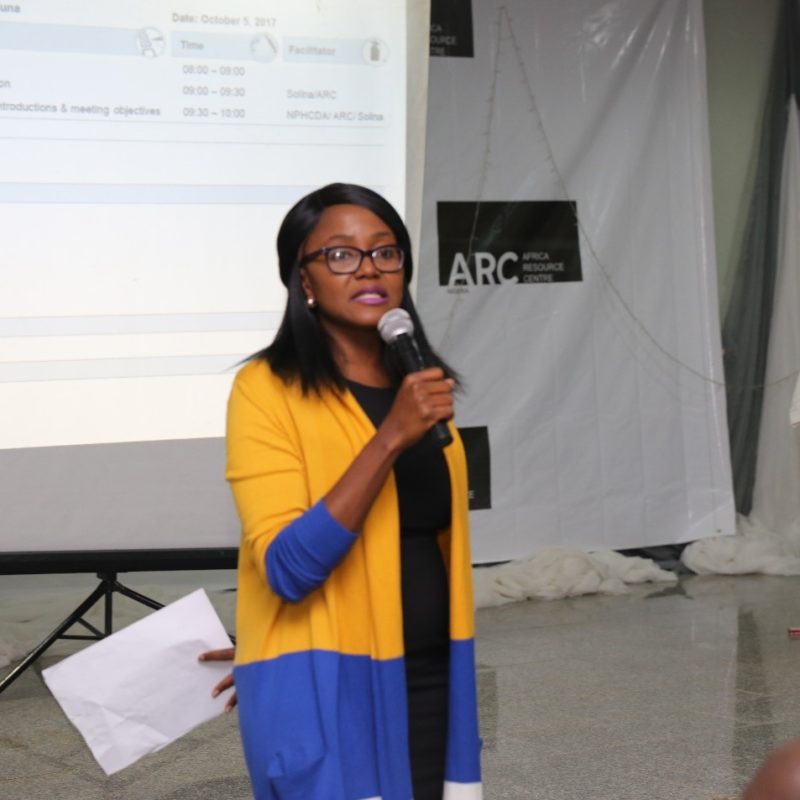Project Details
Over the years, the state of Nigeria’s healthcare system has been characterized by sub-optimal maternal and child health (MCH) outcomes and poor quality of health services. Although the health system is laden with supply and demand side challenges, limited progress in health outcomes is primarily driven by the low coverage of key health interventions and limited availability of life saving commodities in service delivery points across the country.
As the Federal Government scales up access to underutilized and high-impact commodities, effective in-country supply chains has become an even more critical success factor in ensuring these commodities reach the women and children who need them most. There is however some concern, (given deficits in vital supply chain and management functions) that the public health supply chain system could impede efforts to improve coverage and improve health outcomes in Nigeria

Despite marginal improvements and millions of dollars of supply chain investments by development partners and bilateral donors to address supply chain system challenges, Nigeria’s public health supply chain continues to be ineffective, inefficient, fragmented, and wasteful. Existing State and donor driven supply chain interventions are inadequate and necessitate bold, innovative approaches and complementary broad based partnerships to disrupt the cycle of poor public health supply chain performance.
To reverse this worrisome trend, Africa Resource Centre for Supply Chain in Nigeria (ARC Nigeria), an independent advisor and strategic partner founded by the Private Sector Health Alliance of Nigeria and Bill and Melinda Gates Foundation (BMGF) is brokering States and Private sector partnerships to strengthen vaccine cold chain infrastructure in Nigeria.
Speaking at the Knowledge Sharing and Hackathon Workshop on Supply Chain organized by ARC Nigeria, in partnership with National Primary Healthcare Development Agency (NPHCDA) and Solina Group, which brought together over 80 Ministry of Health Directors and Immunization Managers from Borno, Sokoto, Osun, Kano, Kaduna, Katsina, Zamfara, Yobe and Niger states, Dr. Kayode Ogunniyi, Executive Secretary, Osun State Primary Healthcare Development Board, said that the survival of Nigeria as a nation depends on the quality of healthcare that is giving to children particularly the under-5 that constitute 20 percent of the total population.
According to Dr. Ogunniyi “Giving them the right vaccines at the right time is a strategy to secure their wellbeing. A robust knowledge of vaccine supply chain with a view to protecting vaccine integrity from the manufacturers to the administration to the child is a task that must be done. Thanks to National Primary Healthcare Development Agency (NPHCDA), ARC Nigeria and Solina for this initiative.
Dr. Samuel Jiya, Program Manager, Immunisation Vaccine and Logistics, Niger State, revealed that the workshop has created a platform that will strengthen Public-Private Partnerships in the Immunisation and Vaccine space in Nigeria.
“It has facilitated direct engagement of players in the Private sector and public wing. Personally, for Niger State, we have outlined our challenges and proffer new innovations in tackling them. Kudos to ARC Nigeria. Keep it up,” Dr. Jiya stated.
Sharing private sector engagement experience in healthcare, Trip Allport, Project Last Mile Delivery Lead, BMGF, disclosed that the Project Last Mile (PLM), which is an initiative of BMGF in partnership with Coca cola is an example of how the private sector is engaging with the public sector to develop an innovative solution with the aim of providing access to essential medicines and medical supplies in African.

““Project Last Mile, in partnership with the Bill & Melinda Gates Foundation, is proud to support Nigeria in strengthening the vaccine cold chain, tapping into the capabilities of The Coca-Cola Company and its bottling partner, the Nigerian Bottling Company (NBC)” Trip explained.
He continued: “By leveraging the local expertise and business partners of the Coca-Cola System in the country, we believe we can contribute to a marked improvement to maintaining a functional vaccine cold chain, meaning more children will have effective vaccines available at the point of care. Over the past couple of months, PLM has been developing the programme concept and framework with the National Primary Healthcare Development Agency (NPHCDA) at Federal level and plans to now pilot a new model of cold chain equipment maintenance at the State level with Lagos State in 2017/18, and if successful, will endeavor to expand this support to other states in Nigeria.”

At the Supply Chain Workshop on Private-Public sector Collaboration organized by Africa Resource Centre for Supply Chain Nigeria in Kaduna for Ministry of Health Directors and Immunisation Managers in 10 states in Nigeria.
The state of the health system in Nigeria is characterized by sub-optimal maternal and child health (MCH) outcomes, poor quality of health services, lack of protection from financial risk and a double burden of disease, with persistent vaccine preventable and communicable diseases and rising non communicable diseases. Although the health system is laden with supply and demand side challenges, the limited progress in health outcomes is primarily driven by the low coverage of key health interventions and limited availability of life saving commodities in service delivery points across the country.
As the Government of Nigeria scales up access to underutilized and high-impact commodities, effective in-country supply chains become an even more critical success factor in ensuring these commodities reach the women and children who need them most. There is however some concern, (given deficits in vital supply chain and management functions) that the public health supply chain system could impede efforts to improve coverage and improve health outcomes in Nigeria.
Despite some marginal improvements and millions of dollars of supply chain investments by USAID, Global Fund, GAVI, UNFPA, UNICEF, DFID, DFTAD, and other bilateral donors to address supply chain system challenges, Nigeria’s public health supply chain continues to be ineffective, inefficient, fragmented, and wasteful. Existing State and donor driven supply chain interventions are inadequate and necessitate bold innovative approaches and complementary broad based partnerships to disrupt the cycle of poor public health supply chain performance.




